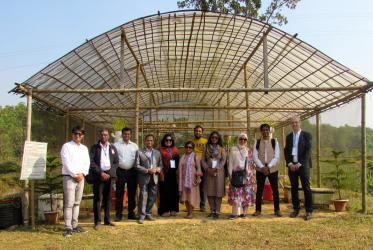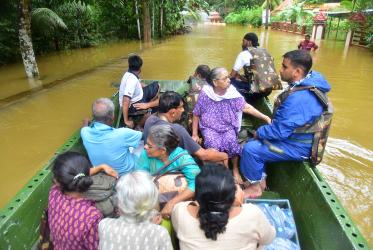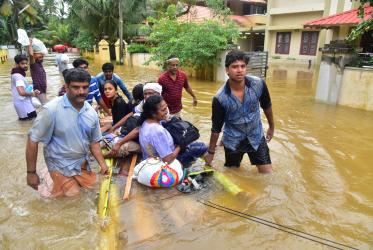Displaying 21 - 40 of 64
06 January 2020
Eco-School promotes blue communities, green churches
19 November 2019
WCC Eco-School begins in Thailand
07 November 2019
Workshop in Bangladesh links climate, economic justice
07 February 2019
All pilgrim routes lead to COP24
11 December 2018
WCC represented at International Sanitation Convention in India
18 October 2018
Asian church leaders exchange ideas on diaconia
19 December 2017
G20 summit: call to pray for peace in Hamburg
07 July 2017
“Overcoming economic injustice” vision of WCC’s Athena Peralta
23 February 2017
During Lent, a “carbon fast” can honour God’s creation
09 February 2017
Plans for 2017 decided by WCC Executive Committee
01 December 2016
WCC Executive Committee issues statement on climate justice
25 November 2016
GEM school ends with hope for a better tomorrow
08 September 2016











